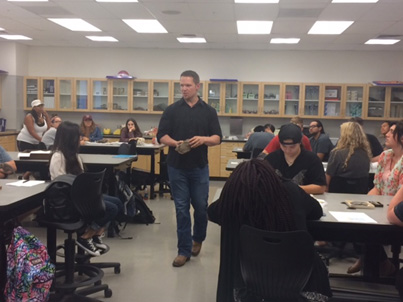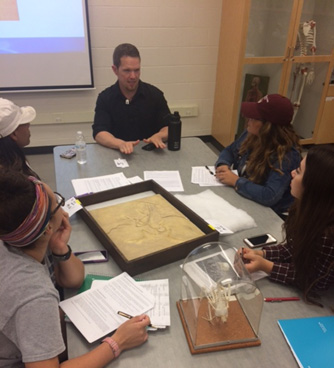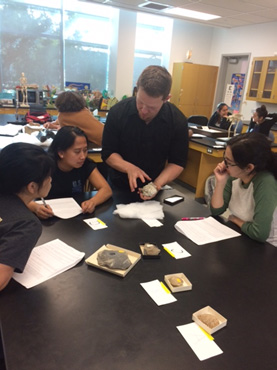
Roughly 10 million students attend American community colleges each academic year, accounting for more than a third of all American undergraduates. Relative to their peers at four-year institutions, community college students are much more likely to come from lower income households, much more likely to be members of an underrepresented minority group, and much more likely to be a first-generation college student. I was lucky enough to spend three years as a faculty member of a Denver-area community college, and that experience left me with a desire to continue serving this group of students in whatever capacity I can. As a member of the UCMP community, I believe that community colleges provide the museum an opportunity for impactful educational outreach, and one that allows us to introduce paleobiology to students who are often still considering what they might study after transferring to a four-year institution (and paleobiology is a field that most haven’t been adequately exposed to). At a minimum, outreach to community college students is certainly a means by which the UCMP can form new and lasting partnerships that allow us to enrich the educational experiences of an incredible group of students.

With the support of the UCMP staff, we successfully ran our first such outreach program by visiting two campuses of Los Medanos College in eastern Contra Costa County. I first contacted LMC last spring and stayed in contact through the summer in order to generate a program that would fit the learning objectives of the college’s introductory biology courses. We sent draft programs to the instructors for feedback and tweaked it as necessary. We eventually used about three dozen fossils and casts divided amongst eight laboratory stations, with each station asking a series of questions that students worked together to answer. Broadly, the stations were aimed at getting students introduced to a variety of fossil types and thinking about the process of preservation, getting them to think about how fossils can lend insight into animal behavior, and encouraging the students to use comparisons between taxa to understand how the fossil record is used to understand evolutionary relationships. The program took two hours to run, and we did this at the main LMC campus as well as their Brentwood Center. In the end, our program was integrated into the college’s course syllabus, and was treated as a normal laboratory meeting for the introductory biology course.
It’s no exaggeration to say that the enthusiasm from both the students and faculty was absolutely incredible! Students were eager when entering the lab room, were engaged and energetic throughout the session, and had enough questions to keep me constantly darting around the room to visit different groups. And their questions weren’t solely coming from the material, either – they were asking questions about the UCMP, about paleobiology in general, and about the variety of research that scientists in our field undertake. On the part of the LMC faculty, it’s difficult to adequately describe the appreciation that was shown for the UCMP and what we had put together for them. Each expressed their gratitude multiple times, reiterating time and again how rare of an experience this was for their students, one commenting that they feel community college students are all too often “overlooked” when it comes to such outreach.

Perhaps some of the community college students that the UCMP reaches will reconsider paleobiology as a field of study, or perhaps interaction with UC Berkeley researchers will simply stimulate some students to consider futures in scientific disciplines more broadly. In many cases, perhaps the extent of our impact is simply adding a unique experience to these students’ science education, and briefly engaging them in evolutionary history in a new and interactive way. At the end of my visit to Los Medanos College, one student stopped as she left for her next class to say “I used to love paleontology when I was a kid; thanks for reminding me why.” In my mind, that’s a successful day.